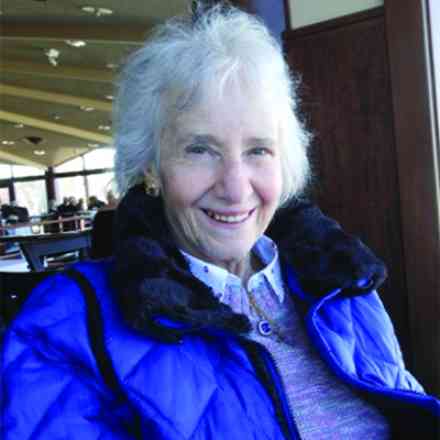I’d Give the World For It, Sayre
But what is the world, next to loving?
Childbirth, child-death, character assassination, cool nights,
autumn wine-apples, windfall, all for the
Raised bar; head tossed back, wearing tam and long-sleeved shirts,
cufflinks catching sun
mulberry linen, script vulnerable, left open in the rain.
The men in her department could not see the passport war
to be with the one she loved …
Rowing an invisible canoe
This she caught in the mirror fifty years ago. Now,
Annik, you are mine
I draw you forth,
with charcoal hair, your collar up, cigarette on lip,
before the first kiss on a RR platform a nanosecond after,
the next war.
Editor’s Note: “I’d Give the World For It, Sayre” is a new poem by Strongin first published in this issue of storySouth. Strongin specifically asked that this poem be paired alongside “Sayre (Woman Professor).” While I don’t know if it’s correct to call this a direct sequel to “Sayre,” the poem definitely resonates with Strongin’s famous earlier work and both poems deserve to be read together.

Born in New York City at the end of the thirties, LYNN STRONGIN grew up as a musical child with a psychologist father and freelance artist mother. Following her parents’ divorce in the mid nineteen-forties when this was still not widespread, the second trauma of her childhood was contracting polio at age twelve. However, this allowed her to develop a gift for introspection. After studying musical composition, she went on to take a graduate degree in American literature and poetry at Stanford University. She is now totally devoting her life to poetry. She has written extensively about polio, the war years, and post-war life in her autobiography; INDIGO: An American Jewish Childhood. Her book SPECTRAL FREEDOM was nominated for the Pulitzer Prize in literature. She has made British Columbia, Canada, her home for the past thirty years, but still considers herself an American voice. Other subjects important to her are the American South, women’s freedom, and the injustices done to girls and women in such institutions as the Magdalene Laundries. She was recently nominated for the George Woodcock Lifetime Achievement Award in British Columbia.

